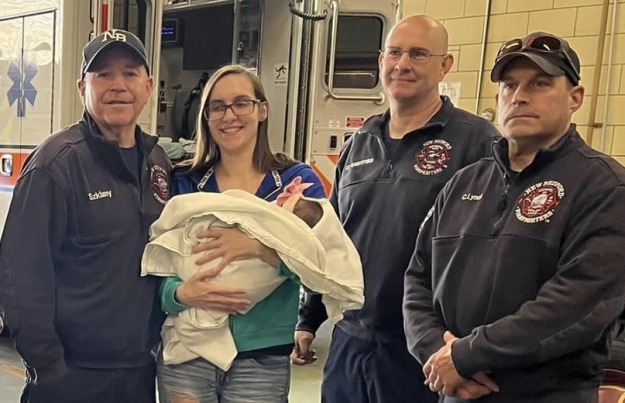The former captain of a New Bedford fishing boat owned by Carlos Rafael, a/k/a “The Codfather,” was sentenced today in federal court in Boston for interfering with a U.S Coast Guard (USCG) inspection of a fishing boat off the Massachusetts coast.
Thomas D. Simpson, 57, of South Portland, Maine, was sentenced by U.S. District Court Judge Indira Talwani to two years of probation, with the first four months to be served in home confinement with electronic monitoring, and ordered to pay a $15,000 fine. In August 2018, Simpson pleaded guilty to one count of destruction or removal of property subject to seizure and inspection.
“Mr. Simpson’s conduct was careless and dangerous. When he ordered the ship’s nets cut loose, rather than simply reeled in, the steel cables securing the net swung violently across the boat, endangering not only the Coast Guard boarding team but Simpson’s own crew,” said U.S. Attorney Andrew E. Lelling. “My office is committed to prosecuting those who impede federal inspections, especially when they jeopardize the safety of law enforcement officers and bystanders.”
“As a federal law enforcement agency, the Coast Guard boards fishing vessels to ensure the safety of the crew and protect our nation’s natural resources,” said Rear Adm. Andrew Tiongson, Commander of the First Coast Guard District. “When Mr. Simpson intentionally jettisoned his net, he interfered with our ability to do that, and endangered everyone on board, including his own crew.”
“Vessel boardings by law enforcement personnel to determine compliance with fishery regulations help support the continued sustainability of the nation’s fisheries,” said James Landon, Director of NOAA’s Office of Law Enforcement. “When fishermen attempt to destroy evidence to avoid detection of illegal fishing, they not only undermine the enforcement management measures designed to ensure that the fishery remains productive, but they also jeopardize the safety of those who enforce those rules. This investigation is a great example of our marine law enforcement agencies working together to uphold federal marine resource laws and to bring to justice those who believe they are above them.”
Simpson was the captain of the fishing vessel Bulldog, a New Bedford based commercial fishing vessel and one of several fishing vessels owned by Carlos Rafael. On Sept. 25, 2017, Rafael, often referred to as “The Codfather,” was sentenced in federal court in Boston to 46 months in federal prison on a variety of charges related to the operation of his commercial fishing business.
On May 31, 2014, the Bulldog was engaged in commercial fishing off the coast of Massachusetts when the U.S. Coast Guard (USCG) boarded the vessel to perform a routine inspection of the Bulldog and its fishing equipment. At the time of the boarding, the Bulldog’s net was deployed in the water and the crew was actively fishing. The USCG Boarding Officer encountered Simpson in the Bulldog’s wheelhouse and instructed Simpson to haul in the fishing net for inspection. The fishing net is controlled from the wheelhouse by an electric winch, which Simpson activated, but instead of hauling the fishing net onto the vessel, he let out more of the cable which attaches the net to the vessel. When the USCG Boarding Officer realized that Simpson was letting the net out, he instructed Simpson to stop and to haul the net in. Simpson ignored the order and continued to let out cable until the net became detached from the Bulldog and sank.
The USCG and the National Oceanic and Atmospheric Administration (NOAA) hired a salvage company, at a cost of approximately $15,000, to retrieve the net from the ocean floor. An inspection of the net revealed that it had three distinct and separate layers of netting in violation of commercial fishing regulations. When two or more fishing nets are placed on top of each other, the size of the openings are reduced. The reduced size net openings hinder younger, smaller fish from being able to escape the net. The prohibition on double or triple lining fishing nets is intended to maintain the size and viability of the fishing stock and reduce over fishing. The use of illegal nets may result in fines and forfeiture of fishing equipment.
U.S. Attorney Lelling; Rear Adm. Tiongson; James M. Noble, Acting Special Agent in Charge of the U.S Coast Guard Investigative Services Northeast Region; and NOAA Director James Landon made the announcement today. Assistant U.S. Attorney David G. Tobin of Lelling’s Major Crimes Unit prosecuted the case.
 New Bedford Guide Your Guide to New Bedford and South Coast, MA
New Bedford Guide Your Guide to New Bedford and South Coast, MA








